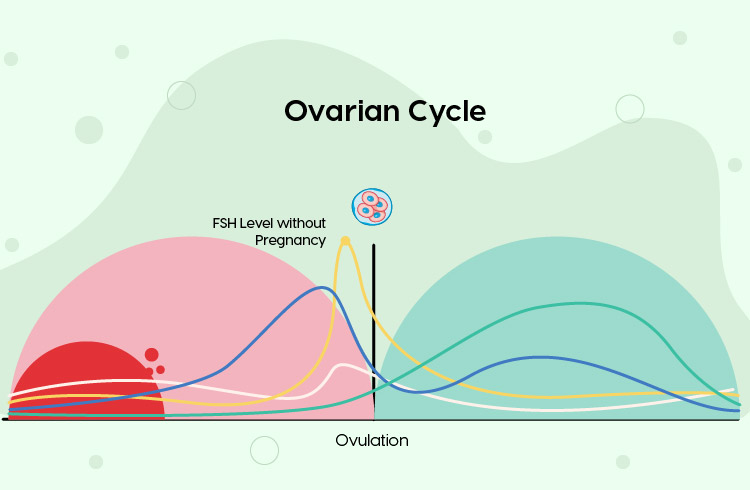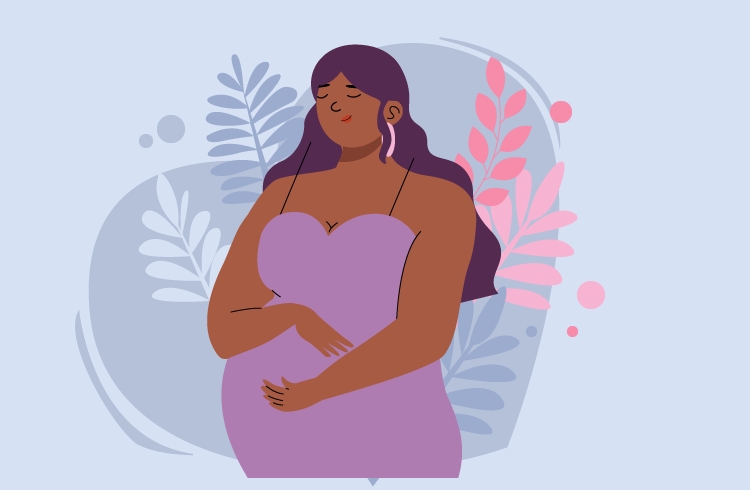For many individuals or couples, bringing new life into the world is a wonderful and natural desire. However, the fertility journey is not always as easy as you would like it to be. Some people may find themselves getting pregnant quickly after trying, while others may encounter challenges that make them wonder, "Why can't I get pregnant?"
To get pregnant, it is important to understand the underlying reasons behind infertility, which provides insights and solutions to the problem. Here are seven possible factors that can cause difficulties in conceiving:
Timing and Frequency of Intercourse:
One of the most common reasons for not getting pregnant is simply not having sex during the woman's fertile window. Ovulation typically occurs around the middle of a woman's menstrual cycle. Couples should aim to have intercourse regularly during this time to increase the chances of conception. If you have irregular cycles or not sure when if your ovulation occurs, you can use smart ovulation trackers to pinpoint your fertile window easily.

Age:
Age plays a significant role in fertility, especially for women. As women age, the quantity and quality of their eggs decrease, which makes conception more challenging. Fertility starts to decline in a woman's late 20s, with a more significant decrease occurring after age 35. Men's fertility can also decline with age, although not as sharply as in women. If you're over 35 and trying to conceive, seizing every chance to conceive is crucial. Therefore, ovulation tracking becomes essential, helping you to make informed decisions about the timing of intercourse and increasing your chances of success.
Related article: Pregnancy After Age 35. Is It Possible and What to Do?
Health Conditions:
Certain medical conditions can interfere with fertility for both men and women. Conditions such as polycystic ovary syndrome (PCOS), endometriosis, and thyroid disorders can affect ovulation or the ability of the embryo to implant in the uterus. In men, conditions such as low sperm count, erectile dysfunction, or sexually transmitted infections (STIs) can impact fertility.

Lifestyle Factors:
Lifestyle choices can significantly influence fertility. Factors such as smoking, excessive alcohol consumption, drug use, and being overweight or underweight can all negatively affect fertility in both men and women. Making healthier lifestyle choices, such as maintaining a balanced diet, exercising regularly, and avoiding harmful substances, can improve fertility outcomes.
Stress:
High levels of stress can affect hormone levels and disrupt the menstrual cycle, potentially making it more difficult to conceive. While occasional stress is normal, chronic stress can have a more significant impact on fertility. Finding healthy ways to manage stress, such as through relaxation techniques, exercise, or counseling, may help improve fertility.
Environmental Factors:
Exposure to certain environmental toxins, such as pesticides, pollutants, and chemicals found in some plastics, can interfere with fertility. Additionally, workplace factors such as prolonged exposure to high temperatures or radiation can also affect fertility in both men and women. Taking steps to minimize exposure to these environmental factors may help improve fertility.
Genetic Factors:
In some cases, infertility may be due to genetic factors that affect reproductive health. Genetic conditions such as chromosomal abnormalities or inherited disorders can impact fertility in both men and women. Consulting with a healthcare provider or a reproductive specialist can help identify any underlying genetic factors that may be contributing to infertility.
This article is the original creation of Femometer. All rights reserved by Femometer Inc. To reproduce, distribute, or reference the content, please reach out to us in advance to prevent any potential legal issues. Copyright © Femometer Inc.











